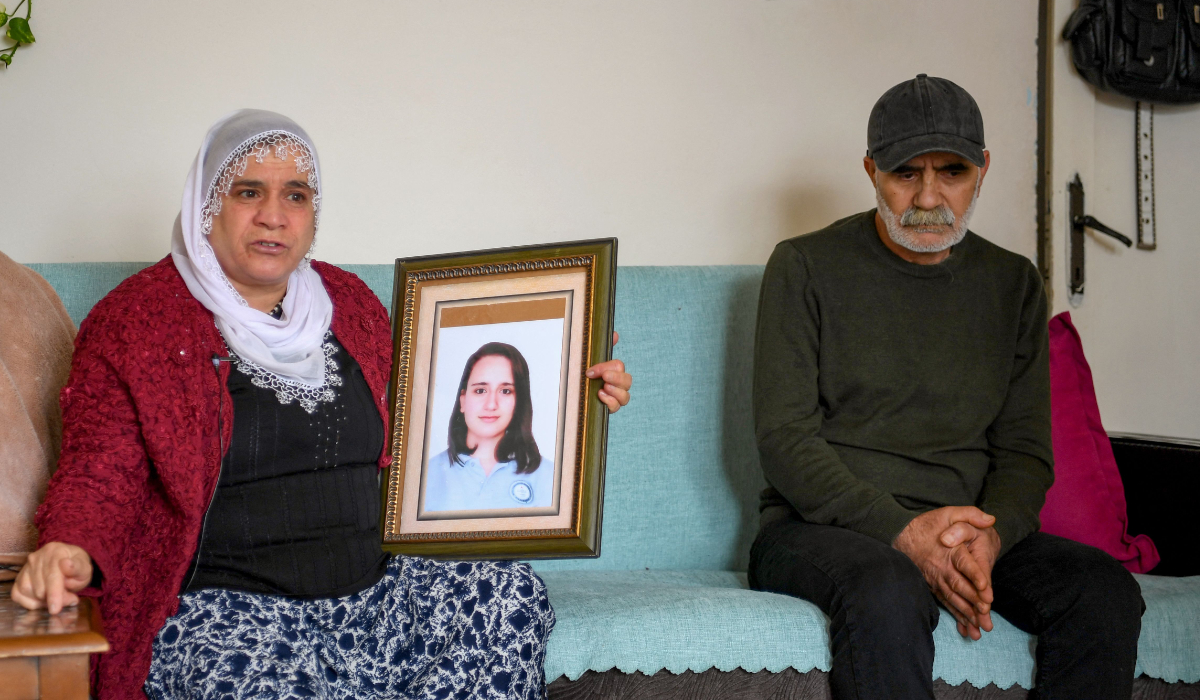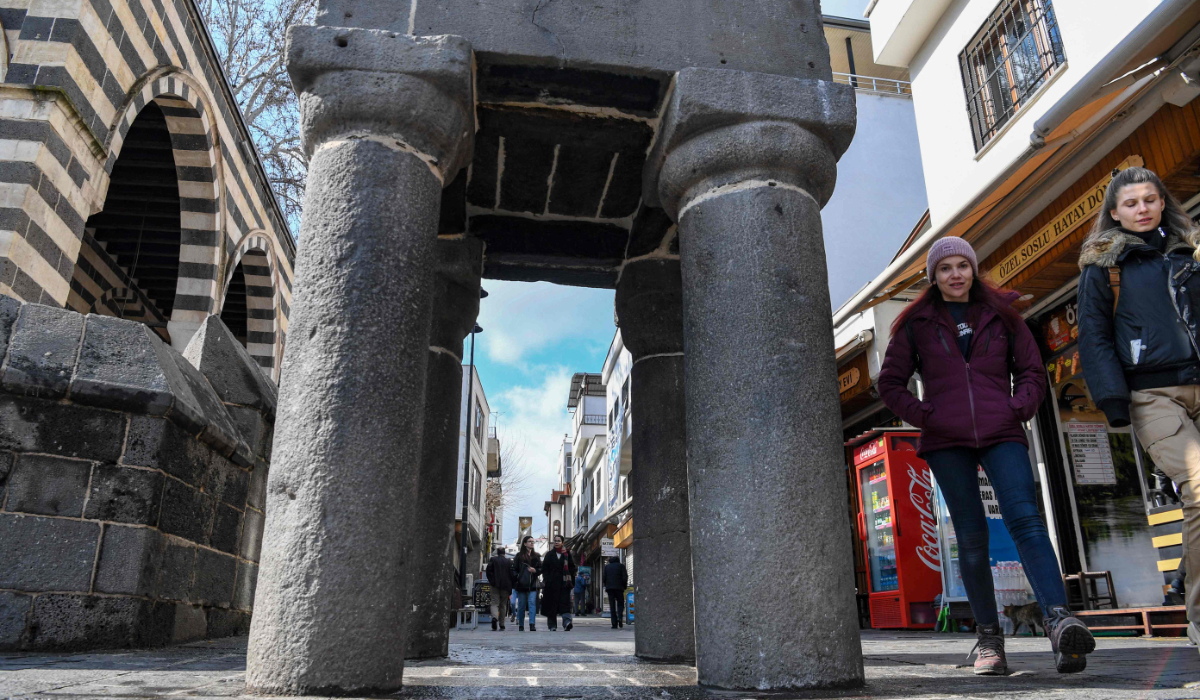LONDON: With the ongoing conflict in Gaza, the looming threat of a full-scale war in the Middle East, a stalemate in Ukraine, and intensifying competition between the US and China, America’s 47th president will face multiple foreign policy challenges.
Indeed, international affairs could prove even more demanding than domestic economic concerns for the incoming administration, with implications for national security, the price of commodities, and America’s standing in the world.
And while uncertainty hangs over the trajectory of the next US president’s Middle East policy, there are indications it will broadly align with the status quo, with regional alliances playing a key role in helping Washington address current and emerging challenges.
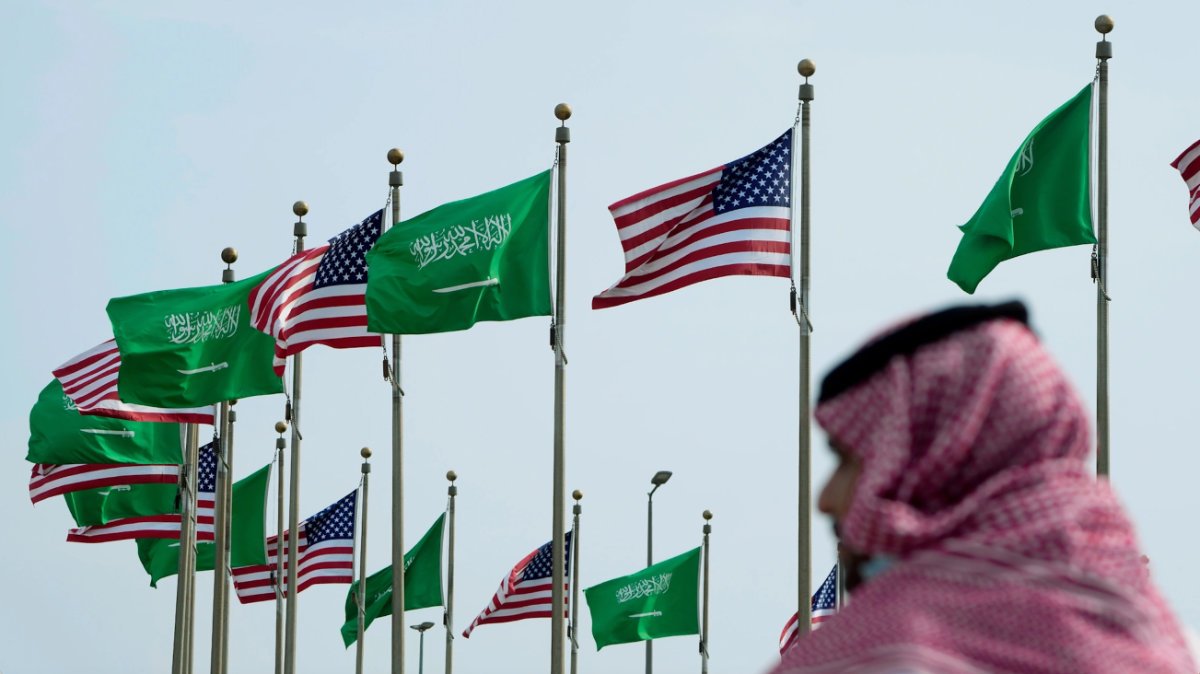
Saudi-US partnership, built on more than 70 years of friendship, has been strengthened by exchange opportunities promoting mutual understanding. (AN archives)
Analysts believe America’s cooperation with Gulf states, notably with regional leader Saudi Arabia, will continue to yield strategic benefits in areas including energy security and regional stability.
Norman Roule, a former senior US intelligence official, told Arab News: “There is no shortage of areas in which the US and its partners in the region, especially Saudi Arabia, can cooperate.”
Vital growth areas for the US and Arab states, particularly Saudi Arabia, include trade, defense, energy, artificial intelligence, space, communications, environmental technology and strategic investments.

Cooperation on space exploration is one of the rising features of Saudi-US partnership. (AN archives)
Despite a rocky start early in his presidency, President Joe Biden has upheld America’s long-standing security, educational and institutional ties with Saudi Arabia. This partnership, built on more than 70 years of friendship, has been strengthened by exchange opportunities promoting mutual understanding.
“The next US president and administration can build on the work of its predecessors by reinforcing existing collaboration with regional allies,” Joe Macaron, a fellow at the Washington-based Wilson Center, told Arab News.
This appears to be high on the agenda for both of the main party candidates — Democratic nominee Vice President Kamala Harris and Republican former President Donald Trump — both of whom view Riyadh as an important partner for Washington.
Throughout his term as president, from 2017 to 2021, Trump placed Saudi Arabia at the heart of his Middle East agenda, viewing the Kingdom as a key business partner and an ally against Iran’s malign influence in the region.
Likewise, Harris, who replaced Biden as the Democratic nominee in July, has acknowledged Riyadh as an important partner.
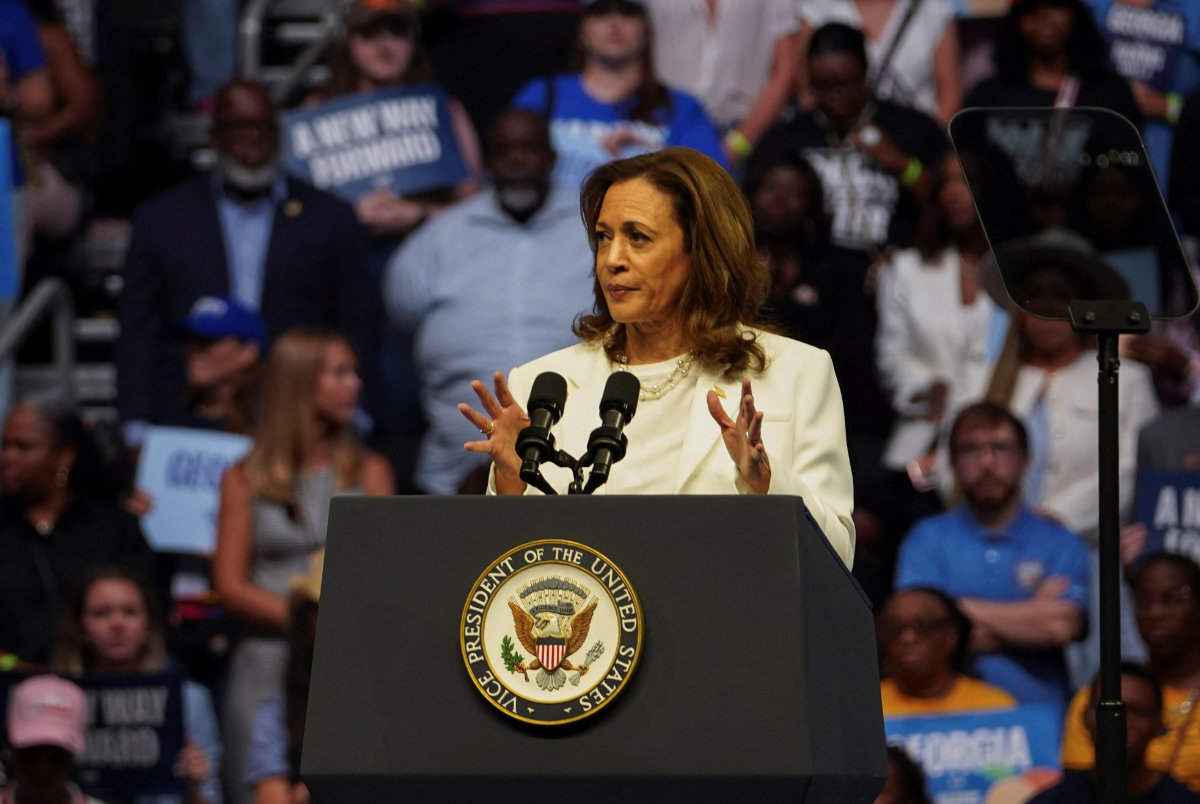
US Vice President and Democratic presidential nominee Kamala Harris has acknowledged Saudi Arabia as an important partner of the US. (Reuters photo)
In 2019, she told the Council on Foreign Relations that the US and Saudi Arabia “still have mutual areas of interest, such as counterterrorism, where the Saudis have been strong partners,” and stressed the need for continued coordination.
However, Macaron emphasized that “as challenges and new geopolitical trends” continue to emerge in the Middle East, “US interests are at stake in the next four years.
“The US can potentially enhance trade and cooperation, but most importantly the expectation is for the US to have a clear and predictable approach to the Middle East,” he said.
Failure to do so could have dangerous consequences. For Roule, “the region’s broken states,” including the Palestinian territories, Syria, Iraq and Lebanon, “cannot be ignored,” as “doing so makes them vulnerable to Iran, Iranian proxies and terrorism.”
“Sudan, Yemen and Libya stand out as areas where much more work needs to be done,” he said. “The end of the Gaza war will bring highly expensive reconstruction projects that will require careful and long-term management.”
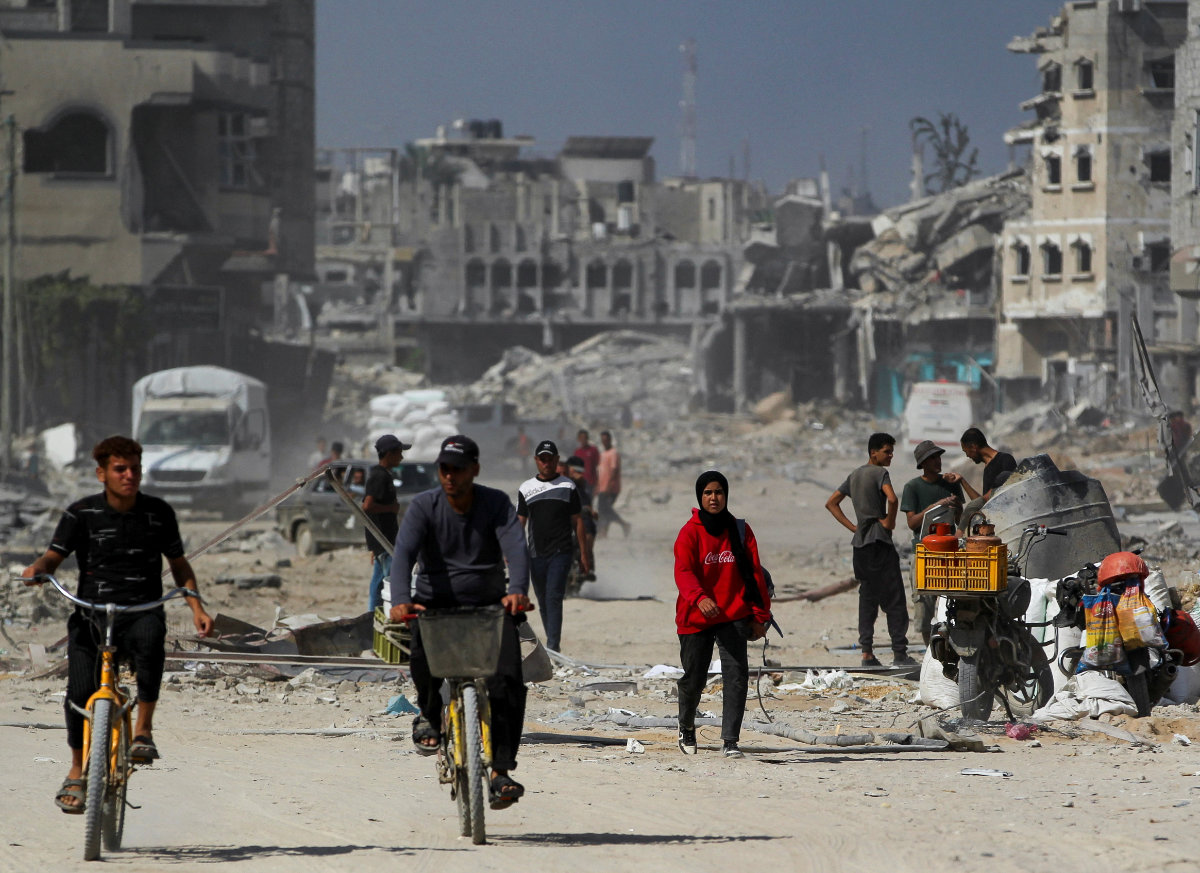
When the Gaza war ends, the US and other countries have much work to do to reconstruct a nation laid to waste by Israel in revenge against the Hamas invasion on Israel on Oct. 7, 2023. (Reuters)
Israel’s assault on Gaza, which came in retaliation for the Oct. 7 Hamas-led attack on southern Israel, has threatened to spill over into neighboring countries, including Lebanon and Syria, raising concerns about the potential for a regional war pitting Israel and Iran and its proxies.
As the US is Israel’s biggest financial and military backer, the Israel-Hamas conflict in Gaza and the possibility of a full-scale Israel-Hezbollah war in Lebanon have become key issues in the US election race.
While reaffirming his staunch support for Israel, Trump has urged the Israeli government to quickly conclude its military operation in Gaza, saying the prolonged war is damaging Israel’s global image.
In an interview he gave in April, Trump said Israel needed to “finish what they started” and “get it over with fast” because it was “absolutely losing the PR war.”
“You’ve got to get it over with, and you have to get back to normalcy. And I’m not sure that I’m loving the way they’re doing it, because you’ve got to have victory. You have to have a victory, and it’s taking a long time,” he said on the “The Hugh Hewitt Show.”

Donald Trump has voiced concerns that conflict in the Middle East could drag the US into a third world war scenario. (AP photo)
Harris, too, has been clear about her support for Israel’s security and its right to exist. Despite opposing an arms embargo on Israel, the vice president has said she and Biden are working to end the conflict.
Since the launch of her presidential campaign in July, Harris has sought strike a balance between reaffirming US support for Israel and expressing sympathy for Palestinian civilians — mirroring Biden’s approach to the conflict.
In her speech at the Democratic National Convention in Chicago last week, she said: “Let me be clear, I will always stand up for Israel’s right to defend itself, and I will always ensure Israel has the ability to defend itself. At the same time, what has happened in Gaza over the past 10 months is devastating … The scale of suffering is heartbreaking.”
IN NUMBERS
• 40k+ US troops and contractors in the Middle East.
• 7.5k Personnel aboard two aircraft carrier groups deployed in the region.
For her part, Green Party candidate Jill Stein has been a vocal advocate for Palestinian rights, openly vowing in several media appearances and social media posts to “end the Gaza genocide.”
Earlier this month, she also slammed Israel in a post on X for “attempting to drag the US into escalations on the brink of WWIII.
“We are seeing ourselves on the verge of potentially nuclear conflicts, which is terrifying,” she said, referring to the possibility of all-out war between Israel and Iran.
More than 40,000 US military personnel deployed across the Middle East, including in Iraq, Syria and Jordan, are at risk of being drawn into a broader conflict should regional tensions escalate.
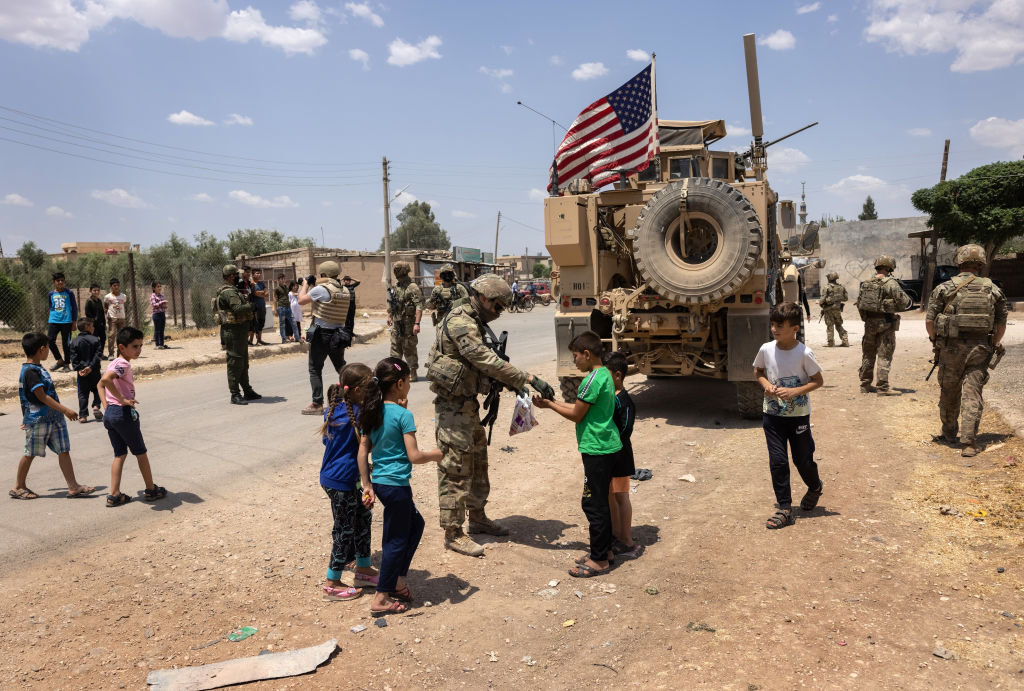
A US Army soldier hands out candy to children while on joint patrol with local forces on May 25, 2021 near the Turkish border in northeastern Syria. (Getty Images)
Trump has also voiced concerns that conflict in the Middle East could drag the US into a third world war scenario. “Who is negotiating for us in the Middle East? Bombs are dropping all over the place!” he posted on X.
“Let’s not have World War lll, because that’s where we’re heading!”
Fears of an all-out war between Israel and Iran have intensified in recent weeks following Israel’s suspected killing of Hamas’s political chief Ismail Haniyeh in the Iranian capital, Tehran, on July 31 and of Hezbollah number two Fuad Shukr in Beirut on July 30.
Iran’s supreme leader, Ayatollah Ali Khamenei, immediately threatened Israel with a “harsh punishment” for the suspected killings. Iran’s security chief Ali Akbar Ahmadian, meanwhile, told Mehr news agency that “all fronts of the resistance will take revenge for Haniyeh’s blood.”
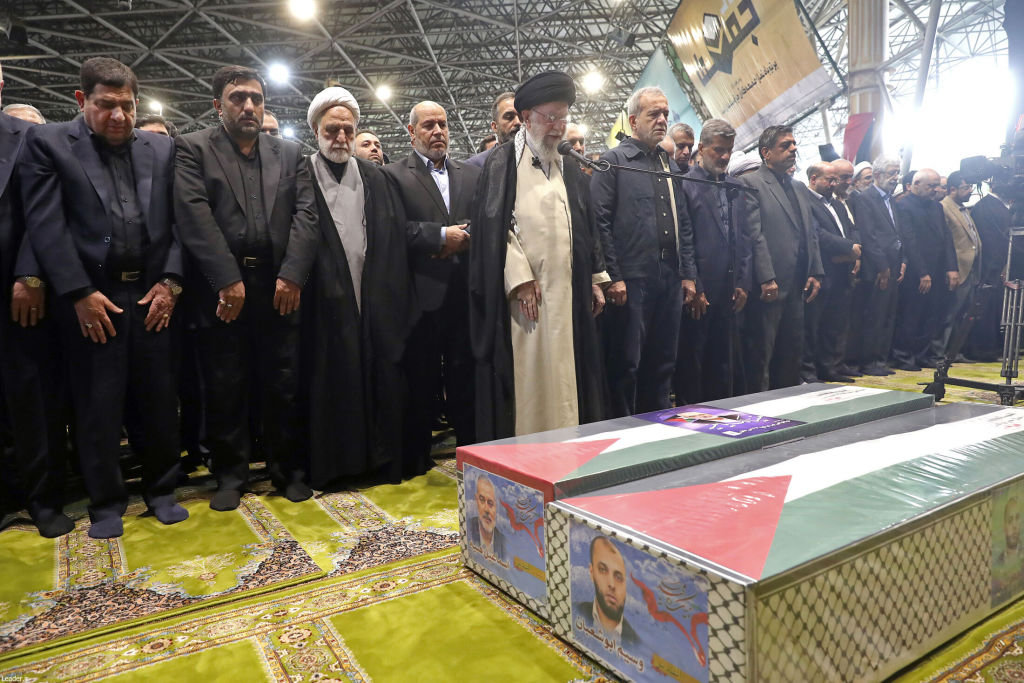
Iran's Supreme Leader Ayatollah Ali Khamenei attends the funeral prayer of the Hamas political chief Ismail Haniyeh, who was assassinated in Tehran in late July. (Handout/Anadolu via Getty Images)
On Aug. 25, Hezbollah launched hundreds of missiles at Israeli targets, marking the onset of its retaliation for its slain commander. Shortly beforehand, Israel launched a wave of preemptive airstrikes aimed at thwarting Hezbollah’s barrage.
All of the US presidential candidates have expressed a desire to prevent a broader war in the Middle East, yet their specific strategies for this remain unclear. One thing they appear to share in common, however, is a commitment to normalization.
“At a time of great political polarization in US politics, there is an emerging consensus on the importance of deepening and broadening the process of normalizations between Israel and America’s Arab partners,” Firas Maksad, a senior fellow at the Middle East Institute in Washington DC, told Arab News.
“The style and pace might differ depending on who is elected to the White House, but not the strategic trajectory.”
Opinion
This section contains relevant reference points, placed in (Opinion field)
In 2020, Bahrain and the UAE signed the US-brokered Abraham Accords, designed to normalize relations between Israel and Arab states.
Macaron believes “it is paramount for the next US administration to define its objectives in the Middle East beyond managing chaos.”
At the moment, the US is “reactive to developments in the Middle East as it manages crises erupting one after the other, which includes managing both allies and foes.”
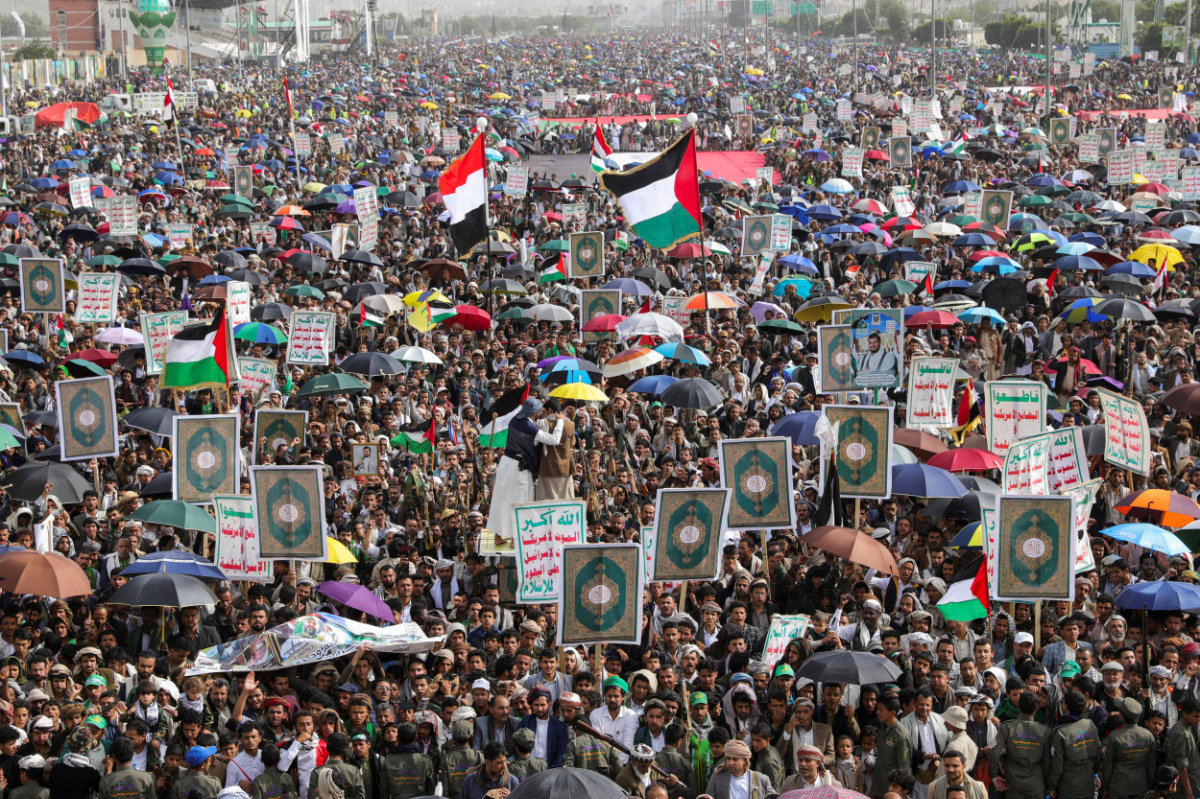
Continuing threats by Yemen's Houthi militia against commercial vessels passing through the Red Sea remains a major concern not just for the US but the whole world. (REUTERS)
He added: “The US is being tested to control the impulses of an increasingly aggressive approach of the Israeli government while continuing to deter Iran and its proxies without provoking a direct confrontation.
“Ultimately, the US must be proactive by advancing its separate interests and by setting limits when needed for both its foes and allies.”
Former intelligence official Roule believes that an effective US foreign policy for the Middle East must include three elements.
“First, the approach must be consistent and clear that our policy will reap benefits for both the US and our partners, as well as deterrence against Iran and its proxies,” he said.
“Next, the next administration must do more to build a bipartisan approach to the region with Congress.
“Last, our approach should involve frequent and senior engagement with partners in the region, who will sometimes better understand the opportunities and challenges before us.”











